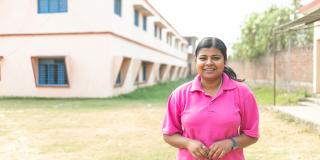
"My name is Aarati Patel and I‘m 22 years old. I’m a National Volunteer from VSO and I’m working as an Adolescence and Youth Health Coordinator in four municipalities in Rautahat, Nepal. You can learn more about my journey in the development sector here.
Strengthening youth and adolescent health access and rights (SYAHAAR)
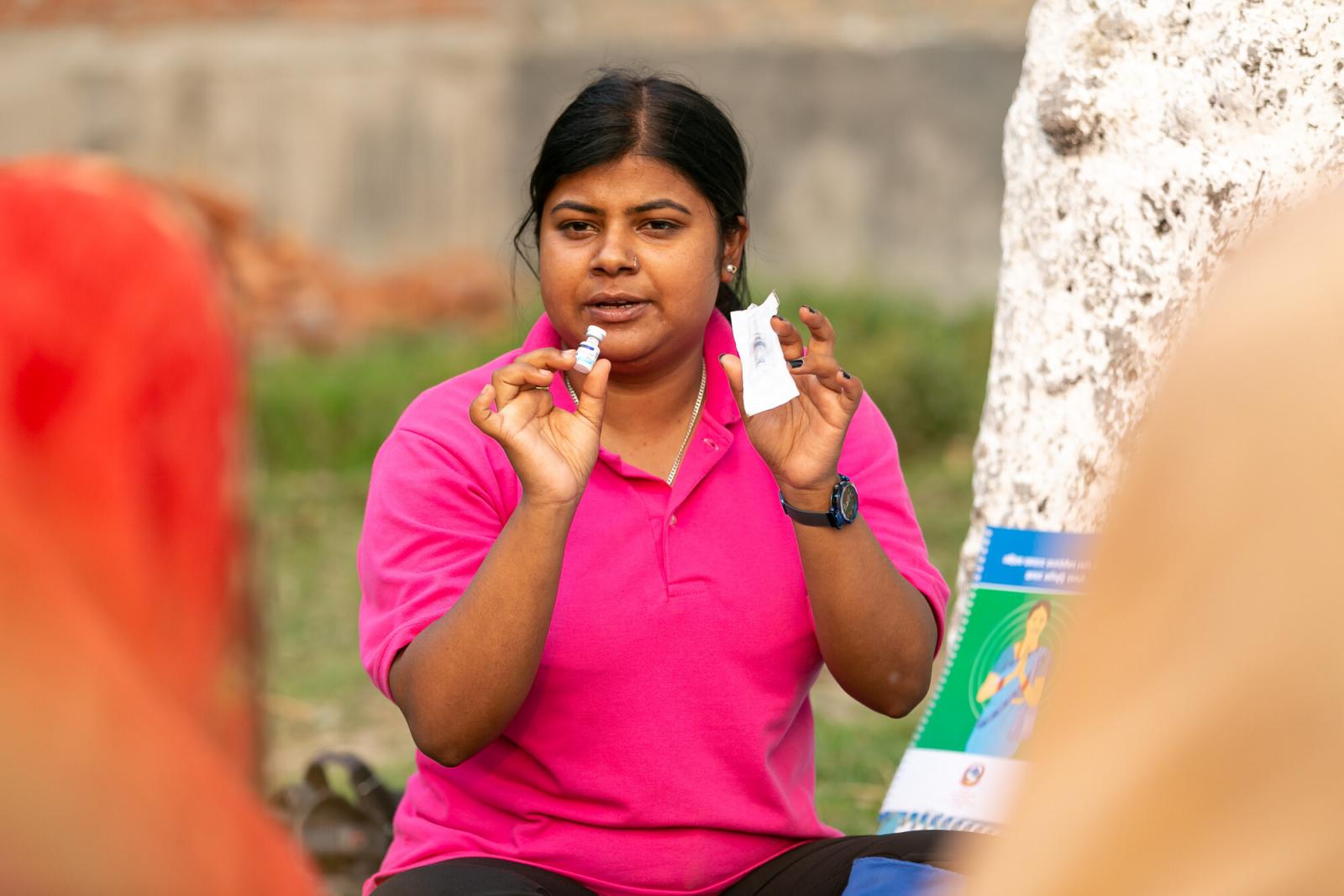
I’m working under VSO’s Strengthening Youth and Adolescent Health Access and Rights (SYAHAAR) project which is funded by UK Aid. We mainly focus on adolescence, adopting a holistic approach to help them access vital health services. The SYAHAAR project is all about providing continuous care, and in Nepali the word for care is “syahaar”. From adolescence to a women’s pregnancy, it's important to identify that health is a life cycle.
The reason we focus on youth is because in the future they might be parents. If we equip young people with health knowledge now, they will become better mothers and fathers later in life, and in turn, this can improve their future children’s health.
In adolescence, young people are vulnerable, as they go through many changes, yet the government doesn't invest in them much. There are programmes for safe motherhood, but for adolescents there is no separate platform to address their issues. The SYAHAAR project is trying to connect with young people to help deal with their problems and build a nationwide network to make their health problems more visible.
My role as a volunteer
As national volunteers, we work on an individual and a community level. We have a network of youth health champions . We appoint two youth health champions every month and have 20 so far. They mentor local youths in their communities and we train them to develop their skills so they’re able to advocate for their rights and amplify their voices
On a community level, we identify harmful social norms that affect reproductive health and work to advocate against them. We check up on pre-birth and postnatal mothers by visiting them at home. Similarly, at a systematic level, we’re trying to strengthen services by conducting assessments of them using a Community Score Card which is then used for advocacy purposes.
At a policy level, we do policy assessments. Firstly, we assess the situation and then prioritise the health need, planning further events and activities accordingly.
The challenges young people face in realising their rights to family planning
In Rautahat the reproductive health indicators are very low in comparison to other districts, and there are several risks and vulnerabilities. Child marriage, early marriage and dowry has affected reproductive health. Similarly, disasters, floods, storms and landslides are very common. These disrupt health services a lot, and young people are left behind.
When we first came, local youths and teenagers attending sessions would feel shy and hesitant to talk. Boys and girls wouldn’t want to sit together and sat separately. We couldn’t even mention the word “sex” in front of them. When discussing menstruation, they wouldn’t want to talk and would be quiet. They’d laugh instead and leave the session. When we were discussing these topics with the children, the parents would blame us for being a bad influence.
How SYAHAAR is changing attitudes
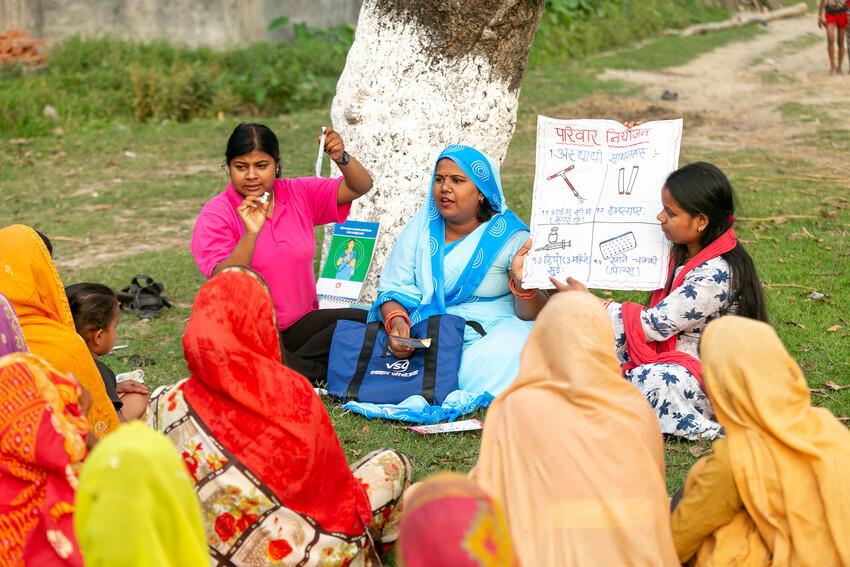
We worked with young people and provided them with booklets and materials and educated them. We visited the families and explained what we are teaching their children and why. Now it has become very easy to talk about reproductive health, and they are the ones asking us questions. The teenagers come and sit together now and are even teaching others.
Similarly, the youth champions have developed leadership skills and we have been helping them to find jobs.
They have also learnt how to amplify their voices. For example, one of our youth health champions was 18 years old and was about to get married. She trusted us and shared how she is not interested in getting married yet but was being forced by her family. We visited her house and counselled her family. Now her marriage is postponed until she comes of age. Her family say that they won’t wed her for two years, when she’ll turn 20.
Working with the LGBTQ+ community
We have been trying to make things inclusive by engaging with people from LGBTQ+ communities to discuss, identify and address problems with regards to reproductive health. We have hosted focus group discussions with LGBTIQ+ and invited them to our events. We discuss their situation and try to understand how difficult it is for them to access health services, then advocate for help..
Why I volunteer with VSO
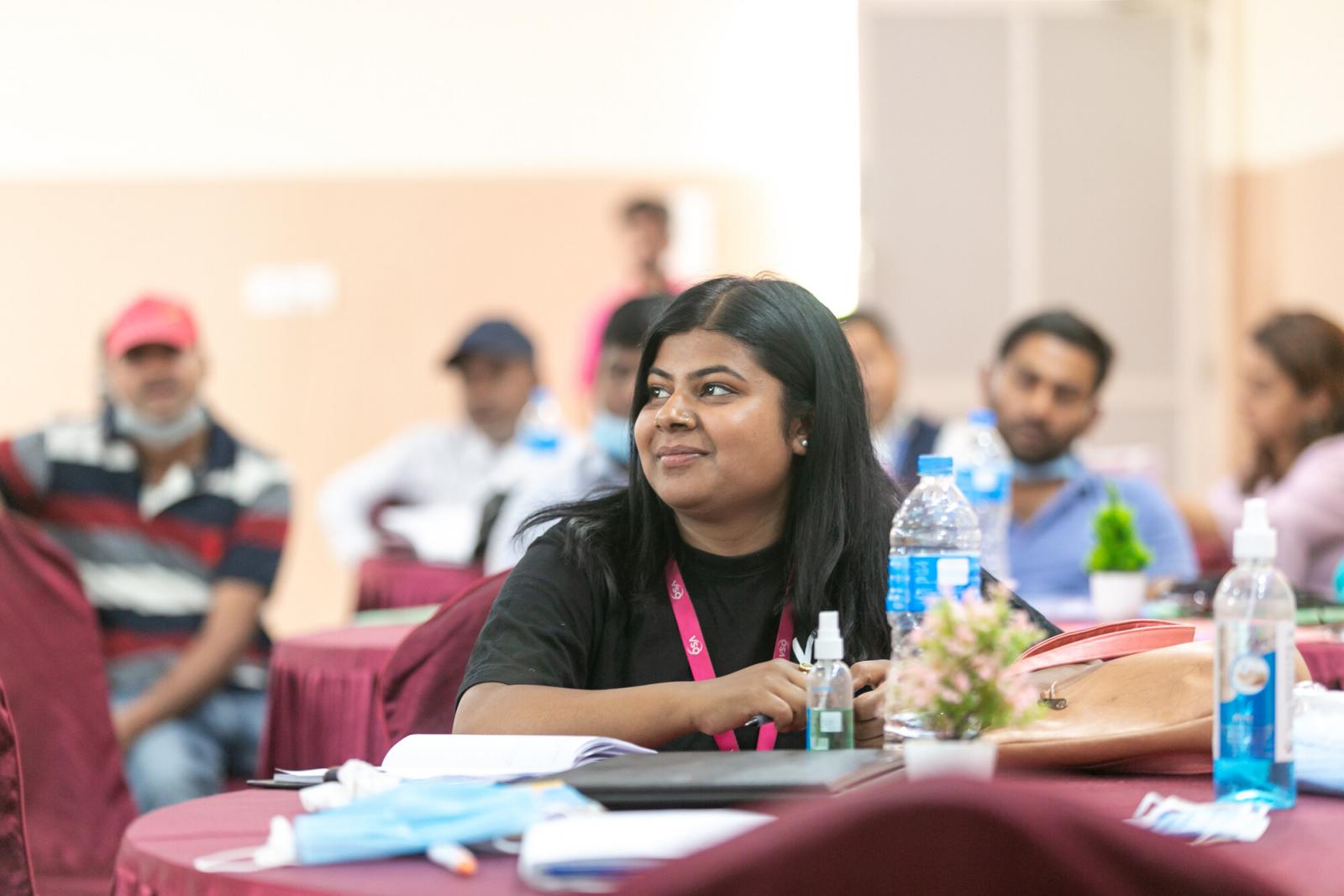
When I was a child, I wanted to help my village, where issues like child marriage and dowry persisted. I feel like volunteering with VSO has helped make my dream come true. When I work as a volunteer, people from my community get to know me, understand me and respect me. They become familiar and share their thoughts, so we can build trust.
I’m from a medical background, so I had experience of counselling at clinics and hospitals, but I was never encouraged to talk in front of a crowd like I’m doing now. I wasn’t confident. Now I work at system and policy levels, interacting with mayors and vice mayors which has improved my leadership skills and my ability to communicate with important people.
Moreover, I work with volunteers from different sectors to bring about change in our community which has given me new perspectives. I wanted to gain experience as a volunteer in my community, and I knew VSO was the right place.
VSO's blended volunteer approach is also quite unique and different from other organisations. I am a national volunteer and work alongside community volunteers and government assigned female community health volunteers. We all work together to bring unique knowledge and share problems with each other.
What inspires me to keep going
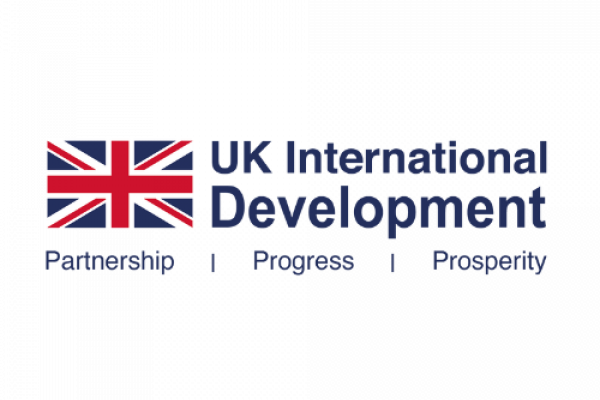
When I see improvement or when someone praises our work, I feel motivated. I feel that if I continue doing this, I will change many lives in the future.
I’m motivated by how I can change a person’s perception and thinking. My favourite thing as a national volunteer is to be able to go to the community and sit together to listen to the problems of the youth and discuss with them.
In the future, I want to work in the community as a role model. Even if we leave, the improvements that we brought will persist.
Listen to Aarati talk about her experience of blended volunteering
Adolescent and youth health and wellbeing
Find out how we're improving health services and empowering young people to exercise their right to quality care. Find out more
Meet our health champions:
- Tuphosah Fridah Monah - Disability inclusion advisor, Kenya
- Bartholomew Sunga - Peer educator, Zambia
- Manisha Kumari Jah - Youth health champion, Nepal
- Yvonne Katwishi - Community facilitator, Zambia
Read more
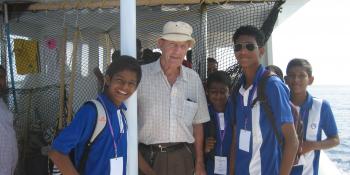
Transforming lives through education: Geoffrey’s VSO legacy
With a deep belief in the transformative power of education, Geoffrey from Norfolk, UK, has devoted his life both in the UK and abroad to making education more accessible for all.
